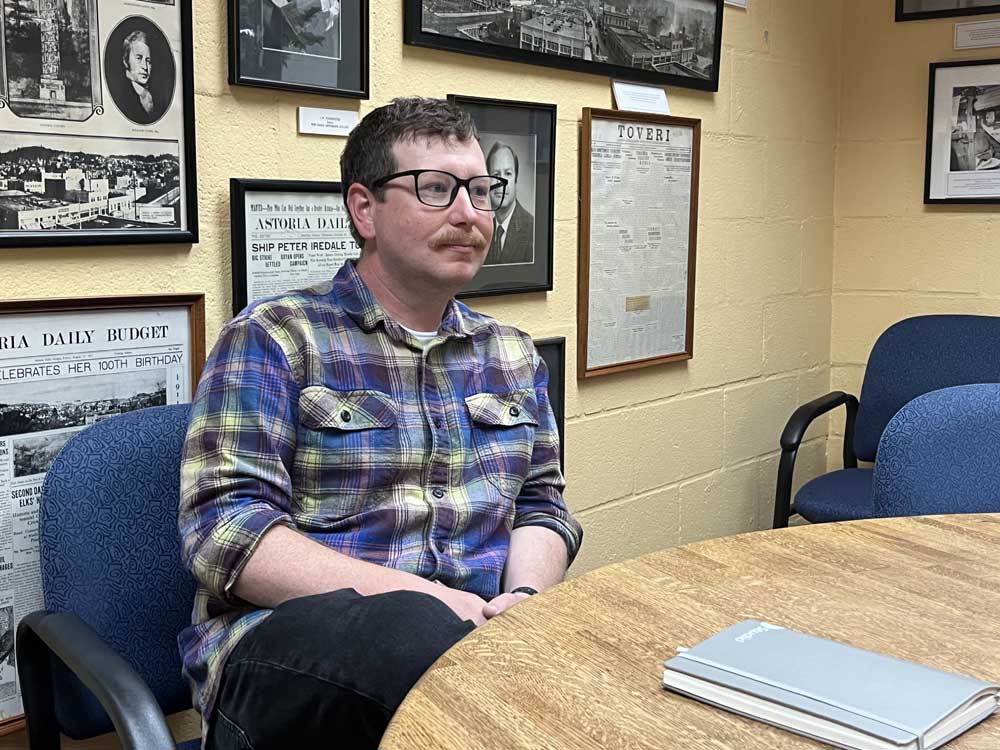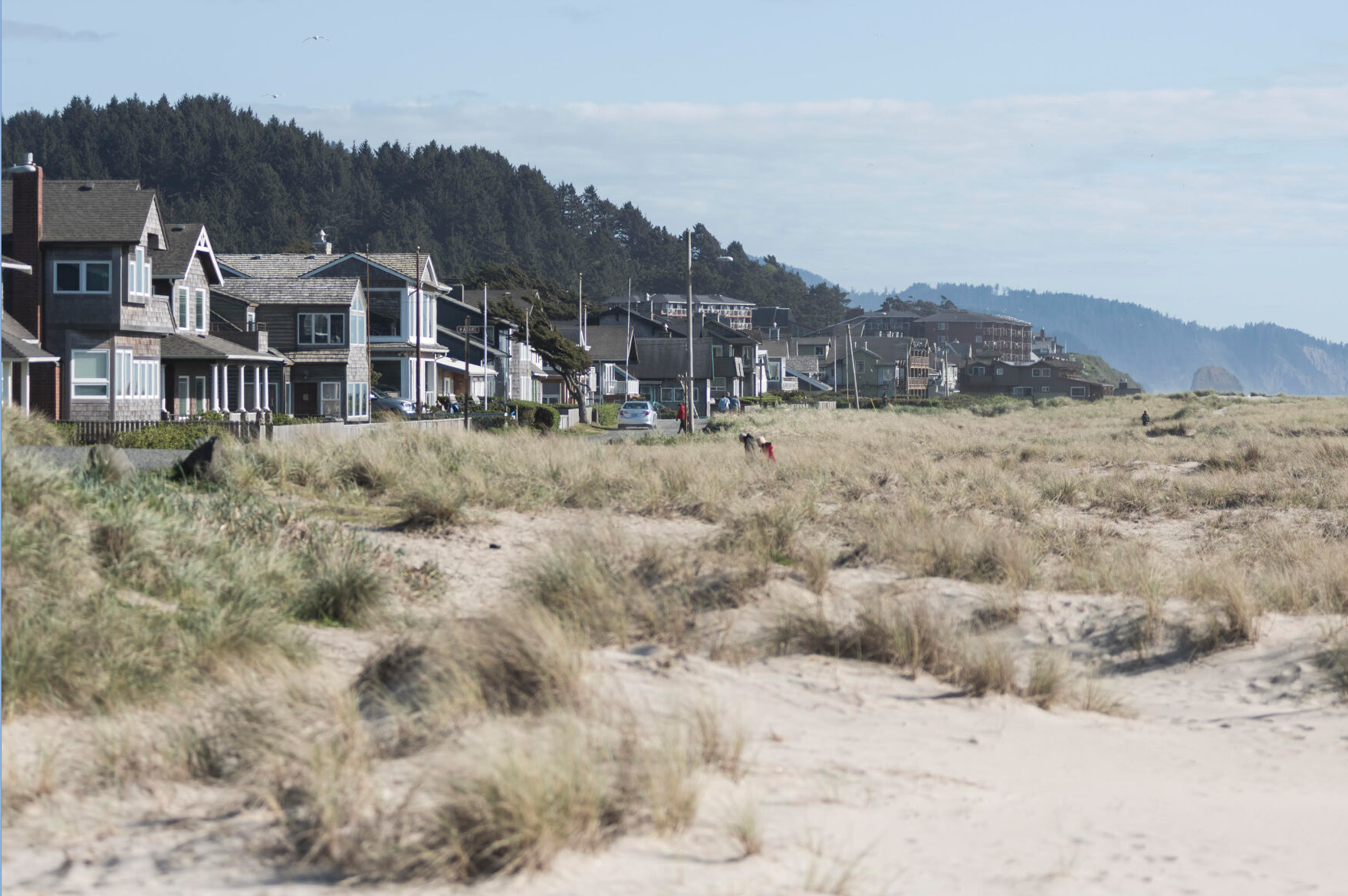Behind the News: ‘The majority of people want to see more housing’
Published 12:30 am Saturday, August 24, 2024

- Andy Kipp formed the Astoria Housing Alliance.
A report released earlier this year by the Joint Center for Housing Studies at Harvard University found that half of renters in the United States were cost-burdened in 2022.
Trending
Cost-burdened was defined as households that spend 30% of their income on rent and utilities. Severely cost-burdened households spend 50% of their income on housing.
In Astoria, where the lack of rental housing options has been a policy concern for the past decade, 43% of renters were cost-burdened and 24% were severely cost-burdened, according to the report.
Andy Kipp, a software engineer who formed the Astoria Housing Alliance this year, believes most people want to see more workforce and affordable housing built.
Trending
“Part of what I think the Astoria Housing Alliance is meant to do is organize those voices in a way that’s effective in communicating to local leaders, local policymakers that this is actually something that people want,” he said. “They think it’s important to the city. And it’s important to our future. And it’s important to sort of keeping Astoria, Astoria.”
In an interview, Kipp talked about the region’s housing crunch.
Q: You formed the Astoria Housing Alliance a few months back. What have you learned so far about the challenges of this type of organizing and advocacy?
A: I think what I’ve learned so far is that there is a real appetite for people in the community to sort of engage with this problem of housing unaffordability — housing shortage. And really sort of move past the way it’s been previously, where it’s focused around these sort of single-incident hearings and issues.
People are looking for the ability to sort of have an overarching narrative and sort of say, what can we do holistically to solve the housing shortage.
I’ve been really surprised by the number of people who reach out to me, want to get involved, want to help out. And that’s been something that I’ve really learned and has been quite surprising and heartening to hear.
Q: You’re a software engineer by trade. Why do you have a particular interest in housing?
A: It’s true. I am a software engineer. My background maybe seems like it doesn’t align with that, but, what I would say is, I live here in Astoria. I see the impact of the housing shortage. I see it on my friends. I see it on my community, both in terms of people who have lived here for a long time, are trying to live here, being forced out, can’t afford to live here, can’t find housing, businesses can’t hire people.
So what drove me to be involved in this is I saw a problem, I thought I need to do what I can do to help, and that’s organizing people.
Q: What do you see as the primary barriers to workforce housing in Astoria?
A: It’s very expensive and difficult to build housing in Astoria. And there are a number of reasons for that.
One, there’s not a lot of land to build on. Two, I think that there is a sort of history — unfortunate — of what I’m going to call community pushback or NIMBYism (Not in my backyard) associated with housing development, particularly workforce housing or affordable housing.
And that’s been very difficult to overcome.
Q: Nearly a year ago, Astoria Mayor Sean Fitzpatrick said he wanted the city to “change the narrative” on housing. The mayor has wanted more emphasis on ownership opportunities. But we still hear concerns about the lack of rental options for people who live and work here. What’s your assessment of the demand?
A: Harvard published a study not too long ago — sometime this year, I think — and what they found is that within Clatsop County, 43% percent of renters are cost-burdened, which means they pay more than 30% of their income towards housing.
It also said that 1 in 4 spend more than 50% of their income towards housing.
So it’s very clear in my mind that housing in Astoria — Clatsop County — is just unaffordable for many people who are renting. And that is a real problem.
Yes, not everybody wants to rent. People want to buy homes. I own a home. That’s sort of the American dream, and that should be encouraged.
But I think when we look at the most pressing affordability crisis, it’s around rental housing, and the lack of, so I have to sort of disagree with the mayor on that assessment.
Q: One of the ugliest chapters at City Hall in recent years, in our view, was the campaign against a workforce and supportive housing project at Heritage Square. Neighbors and nearby residents have also sought to block the Owens II, an apartment complex for low-income seniors and people with disabilities. Since these are publicly-financed projects, we understand that they should be subject to robust public debate. But what is your sense of the political climate for this type of housing?
A: My suspicion is that the majority of people want to see more housing, including housing for seniors and persons with disabilities, as is the case in Owens II, also workforce housing. People understand how that’s all connected.
Part of what I think the Astoria Housing Alliance is meant to do is organize those voices in a way that’s effective in communicating to local leaders, local policymakers that this is actually something that people want. They think it’s important to the city. And it’s important to our future. And it’s important to sort of keeping Astoria, Astoria.
This has always been a working-class town. If we don’t make that a possibility to continue, I think Astoria actually loses in the end and is no longer sort of recognizable as the place that we all know and love.
I think a politically shrewd position would be to understand and work towards solving this housing crisis, not against it.









